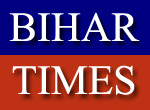Muslim spokesmen, appointed by few know whom, are all over the TV channels. With election fever picking up, they are also forming delegations and trooping into homes of politicians to strike deals on behalf of the Qaum.
The latest in brief limelight is Imam Bukhari of Jama Masjid. He met Congress President Sonia Gandhi “for 45 minutes”. He says he “discussed the arrest of Muslim youth in terror cases, implementation of the Sachar Committee and Ranganath Mishra Commission recommendations, Anti Communal Violence Bill”. More likely, she listened to him.
The Indian Express report said the Imam’s endorsement would “bolster the Congress campaign, especially in Uttar Pradesh”. But this was precisely the calculation when the Congress fielded the Imam’s son-in-law from Saharanpur for the 2012 state assembly election. He lost.
If Sonia Gandhi imagines she is dealing with a leader of Indian Muslims, she will not be doing much good to her party, Indian Muslims or the Imam. It is empirically proven that in the political sphere his word does not carry.
The Congress president should know that a running battle between Muslim factions on the issue of Waqf land in New Delhi has been holding up traffic in key areas of the capital region with alarming frequency. It is a trifling matter but with potential for sectarian clashes. Did the Imam ever intervene? If he did not have a say in the matter, surely the government had the authority to implement a high court order pertaining to the land which happens to be in the fancy Jorbagh area. It is not even an issue, just a small dispute which has led to a breach of peace more than once. People who live in the area have begun to see this “intra Muslim” quarrel disturbing their daily lives.
It turns out that there is no leadership worth the name which can mediate between people and the government on this as on any civic issue. The problem becomes severe in Muslim enclaves. People, after having voted on Election Day, are left to their devices. Come Election Day and again the Imam is required to pull out his grand apparel.
For decades Muslims remained regular Congress voters. This was their respite from the trauma of partition and its aftermath. The first intimations of political mortality for Indira Gandhi came in 1967: she lost in eight northern states.
Then came the first indications of a Nehru-Gandhi figure becoming saffron-positive: Indira Gandhi began to canvass Hindu support. The “Muslim appeasement” chant of the Sangh Parivar had begun to corrode the secular façade of even Indira Gandhi.
This anxiety became even more pronounced in the Rajiv Gandhi years. V.N. Gadgil, Congress general secretary, told me in 1985, that “Hindus were beginning to fear that Muslims were appeased by successive Congress governments”. How “appeased” the minorities were became clear in the Sachar Committee Report in 2006. But the Congress had already set into motion steps to woo Hindu sentiment. In 1986 it opened the locks to the Mandir in Ayodhya. Climax was reached with Rajiv Gandhi promising “Ram Rajya” while kicking off the party’s 1989 election campaign from Ayodhya.
To keep the Muslims in his sway, Rajiv banned Salman Rushdie’s "Satanic Verses", upturned the Supreme Court verdict on the Shah Bano case and delayed upgrading relations with Israel, as if these were the bread and butter issues for Indian Muslims. Those have never been addressed.
Rajiv’s faulty moves on issues he had no instinctive feel for, left the field open for the BJP to expand. P.V. Narasimha Rao found it more important to thwart Arjun Singh’s political aspirations, than to build defences against the rising tide of the BJP.
History will judge P.V. as having been a better friend of Atal Bihari Vajpayee than of any Congress leader. Little wonder that L.K. Advani described him as the best prime minister since Lal Bahadur Shastri. And why not? During the 1965 war with Pakistan, Shastri had asked the RSS to take over Civil Defence duties.
This, Madame Congress president, is a trend which your party is not equipped to reverse. You must know that the party you supervise is the one that Muslims would have been the most averse to had the RSS-BJP not chosen a candidate whom even a magazine like the Economist has flinched from endorsing.
On Dec 7, 2013, the country did not know what would be in the cards Dec 8, when election results to four state assemblies were to be announced. The Congress was trounced in all the four and in Delhi emerged AAP, quite miraculously. Many including the Muslims did not know that AAP had this extraordinary potential. It became a matter of survival for the Indian establishment to check AAP in its tracks. That too is what the nation including its Muslims will wait to see with bated breath May 16.
|


